Breed
Accelerate and improve
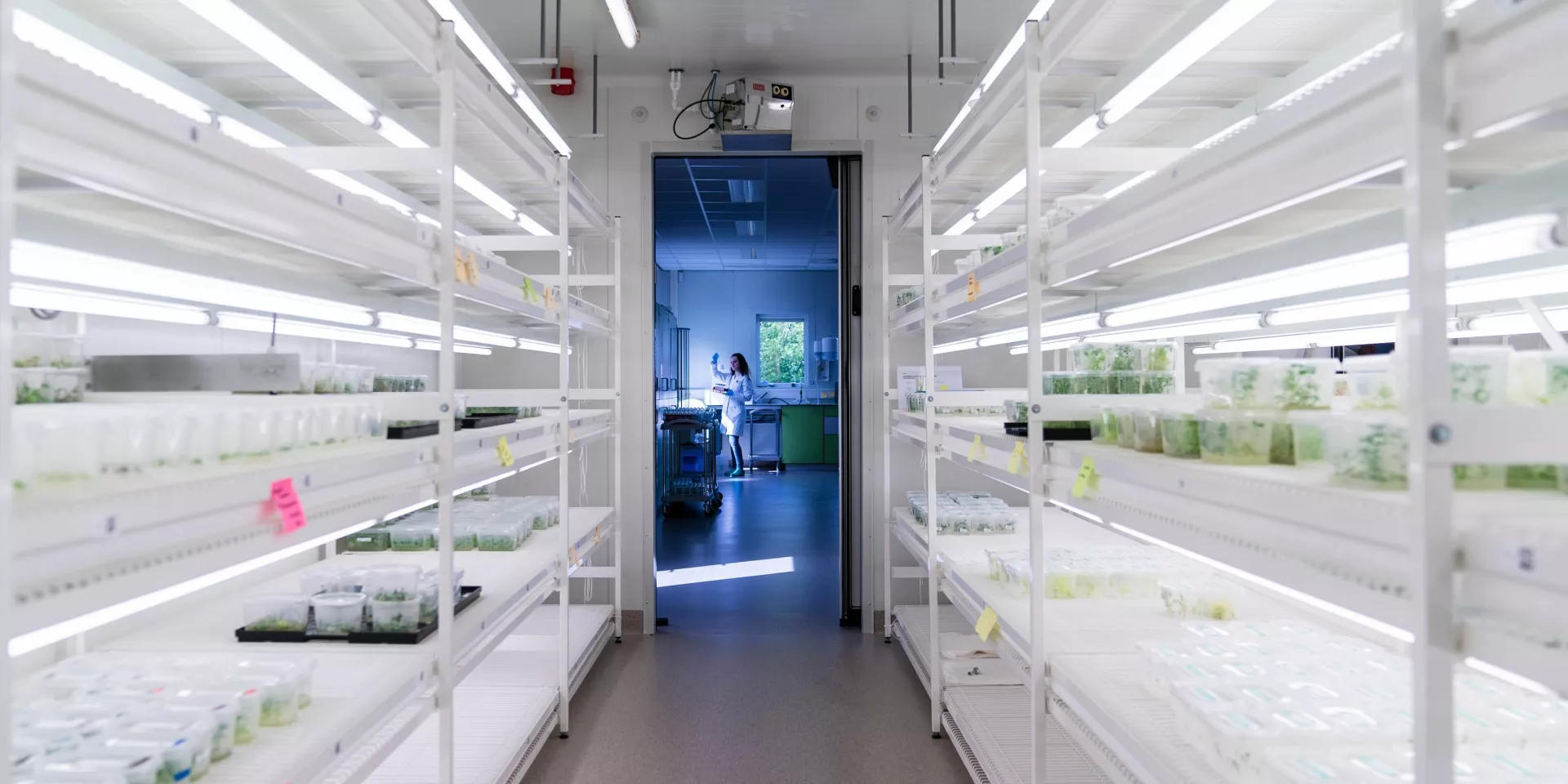
Accelerate and improve
A climate-adaptive, efficient and stable potato crop: it is no longer a question, but a matter of course. Our Corporate Social Responsibility (CSR) goals are firmly embedded in our breeding programmes. In doing so, we set the bar high and do not compromise; if we have promising varieties which do not meet our strict sustainability requirements, we set them aside. We now have plenty of new varieties from Royal HZPC Group ready to conquer the world in the coming years. In 2023-2024, the seed potato acreage reached 21,271 hectares.
In 2024 no less than 69% of our youngest generation varieties in our greenhouses will be resistant to potato virus Y and the varieties will have double resistance to Phytophthora. These varieties will be in position from 2030 and will then be introduced to customers and seed potato growers. This puts us on track to achieve 75% by 2030.
Also when it comes to nematode resistance, we demand the utmost. And we are on track to achieve our goals by 2030. By then, 95% of our varieties should be resistant to Rostichiensis and 24% to pallida, both of which cause potato cyst nematodes.
Another great result: we have been researching Erwinia disease for decades, but since 2021 we have had a breakthrough. This reduces the chance of introducing susceptible varieties. We have now classified varieties according to susceptibility to Erwinia disease.
There are still more steps to take on CSR. The average resistance level to Fusarium increased by 25%. With that, we just missed our goal of 30% in 2024. At the same time we also wanted to improve the dormancy of new varieties. We have made nice progress, but not as fast as expected. However, we will continue to increase selection on these traits in the coming years, with our focus on the retail and processing sectors.
For many years, we put a lot of time and money into developing a powerful research machine. This allows us to set the bar high and select traits more specifically, quicker and in a more comprehensive manner, thanks to marker-driven breeding and data models. A solid foundation that means we are now gaining momentum in developing new climate-robust varieties that have high yields with fewer inputs. Our growers and customers are eagerly awaiting these hybrid varieties and we are also on track in this area. In 2023-2024, the main focus was on testing and further improving the varieties in test fields in Kenya.
Royal HZPC Group B.V. not only grows varieties itself, but also cooperates with a number of independent growers who can and do use parental lines from our research facilities. This has yielded some great successes, including Rashida which is doing well in the fresh market, Travolta for the fries industry and Quintera which is highly appreciated both in the fresh market and by the fries industry.
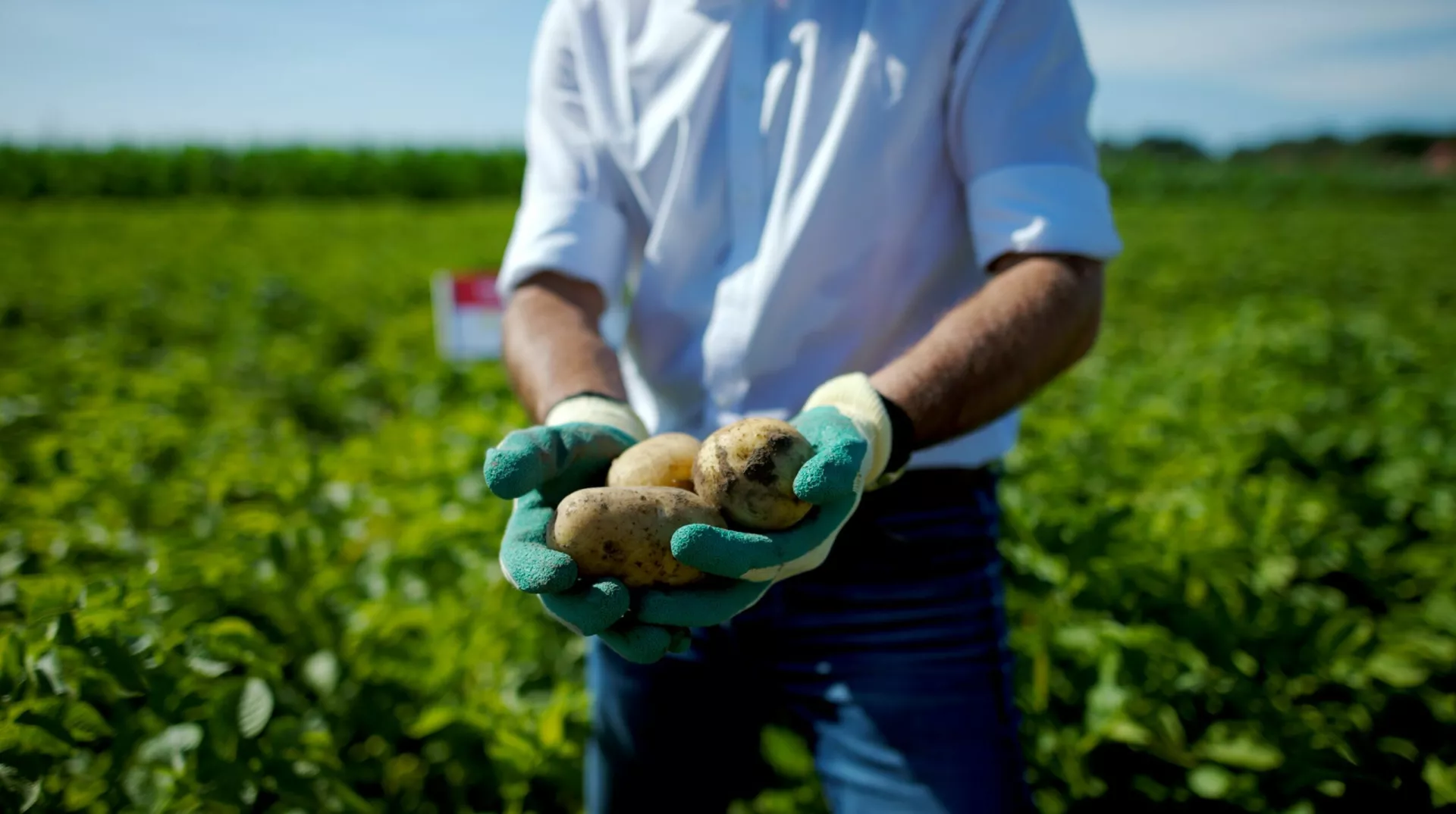
On 5 July 2023, the European Commission (EC) spoke out on New Breeding Technologies (NBTs) that will enable us to accelerate the development of fully resistant varieties. And this is crucial, with respect to the accelerated reduction in the use of plant protection products. The European Commission recognises that traditional techniques cannot achieve success here and has now taken the position that NBTs are allowed if you use them to accelerate the development of products that you can also obtain with conventional techniques. The Committee for the Environment, Public Health and Food Safety and the Committee of Agriculture and Rural Development support this position. The European Council does make it a condition that all companies should have access to NBTs, whose patents are often owned by larger parties. With that, the patent debate is once again back in the political arena. Patents in the plant improvement world do not always sit comfortably alongside plant breeders' rights.
Meanwhile, nine plant breeding companies, including Royal HZPC Group B.V., have established the Agricultural Crop Licensing Platform. Any company that joins will have access to available patents on plant traits for a fee and later, hopefully, technology patents. It is a clear signal that we have a solution as an industry and demonstrates that we are at the forefront when it comes to patents in the potato world.
Although legislation around NBTs is still a few years away, we are already examining which applications could be worthwhile for us as a potato breeding company. The starting point is that it should add value for the grower, customer and/or consumer. We are also exploring business cases outside Europe.
On 24 April 2024, the European Parliament adopted an important regulation for the new Plant Reproductive Material (PRM) scheme. This is currently subject to further political discussions. The regulation could replace the directives that have been in place since the 1960s for the trade in seed potatoes, among other things. Every European country has incorporated these old directives into national legislation so there are differences between them. For example: The Netherlands has much higher requirements for the inspection of seed potatoes than some other countries. The new regulation, which will not come into force for several years, will ensure more uniformity. In practical terms, this means that the NAK must conduct inspections according to the EU standard. There are two sides to the PRM: on the one hand, it offers Royal HZPC Group B.V. a great opportunity to distinguish itself in the market by adopting its own higher inspection standards. On the other, it allows specific groups of growers, such as organic growers and amateur growers, to exchange unchecked seed potatoes even though we ought to be extremely careful with phytosanitary rules.
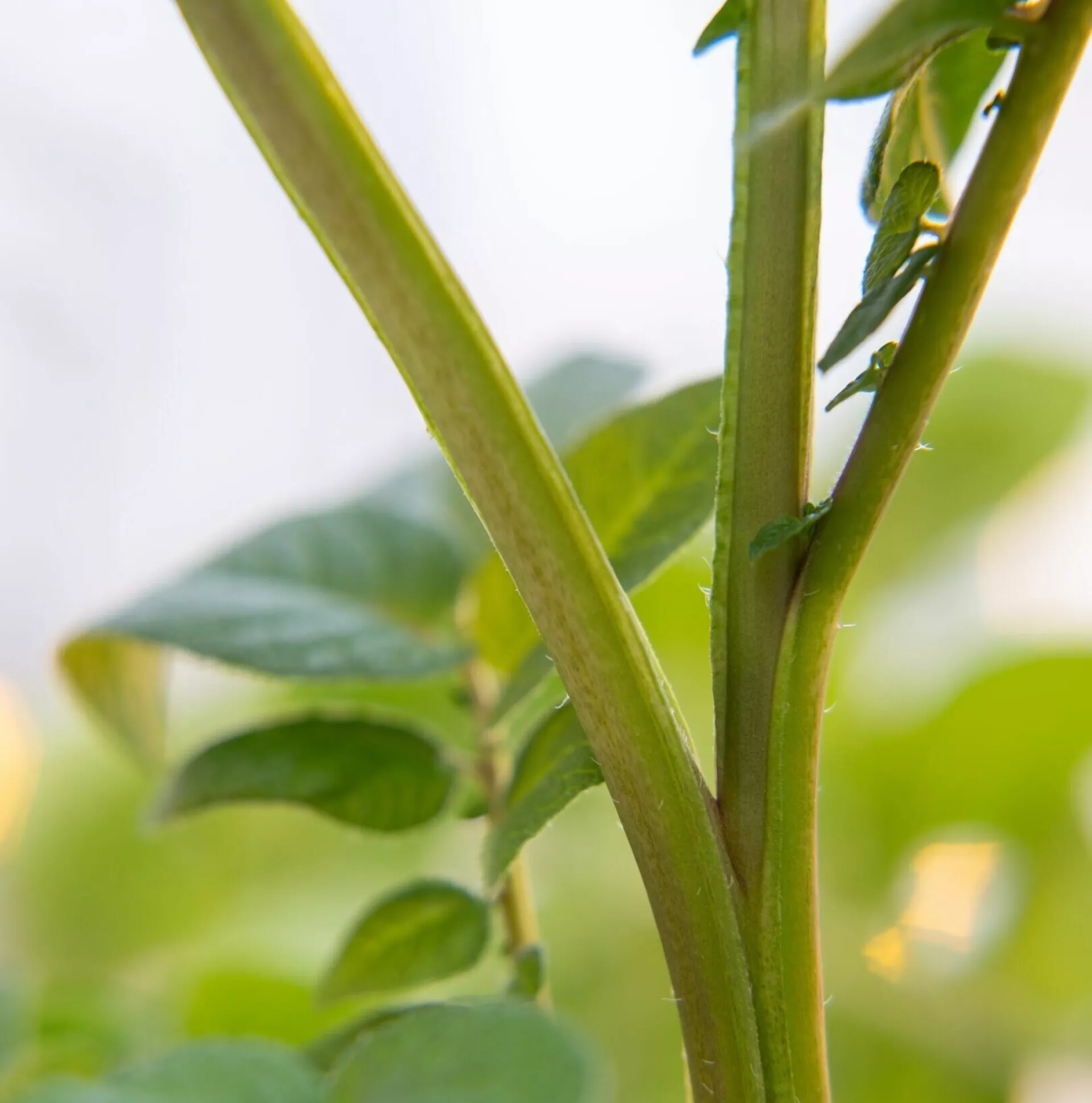
From 1 January 2024, universities can use a universal potato variety set provided by Royal HZPC Group B.V. for basic research. We will make the variety set available in the form of 96 in vitro plantlets or tubers, with the aim of simplifying and accelerating research on potatoes. And this project has two advantages; we help academia and it gives us a chance to understand the potato even better. This type of private-public partnership is new but several parties have expressed interest and the first experiments have already become a reality.
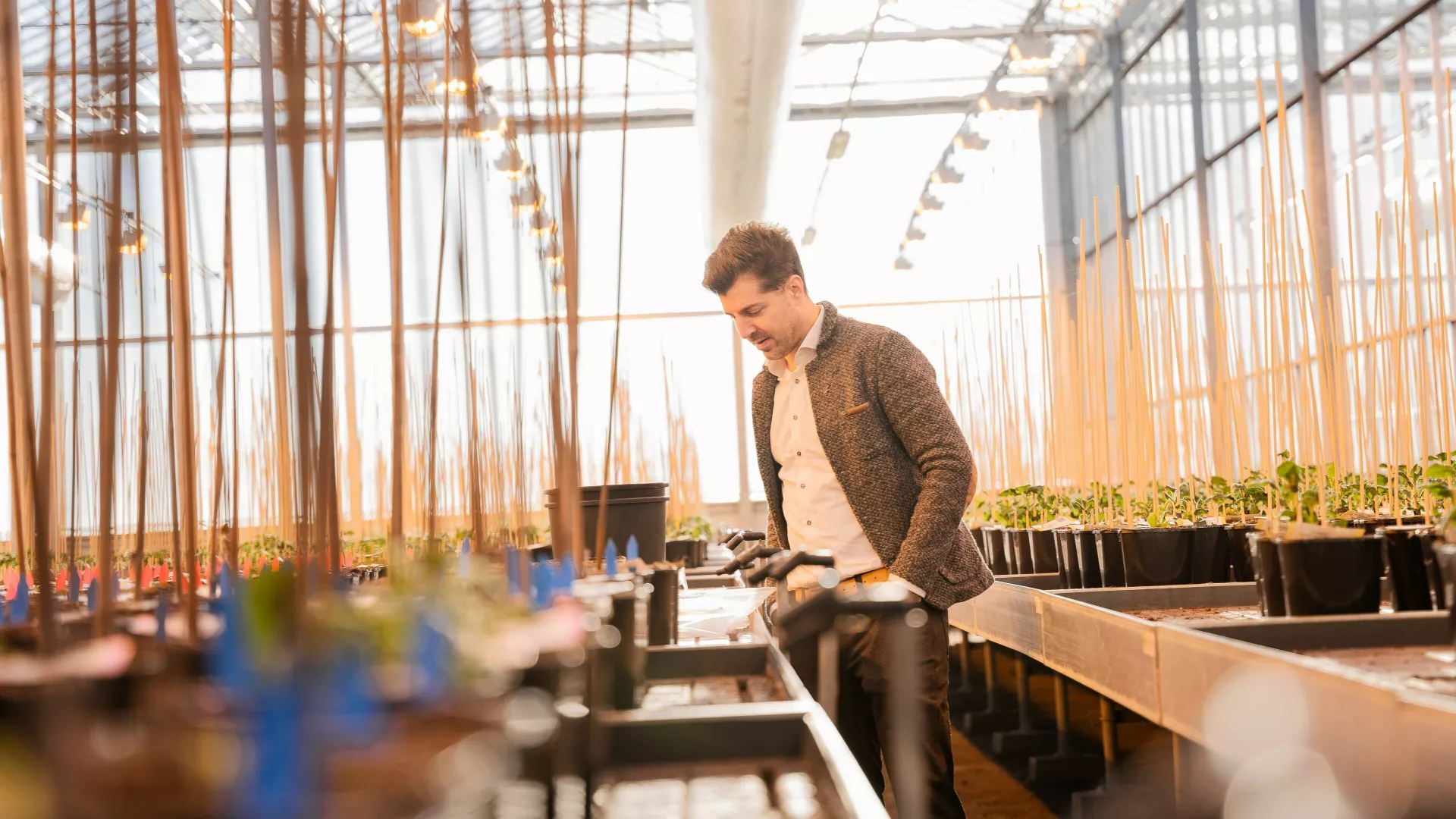
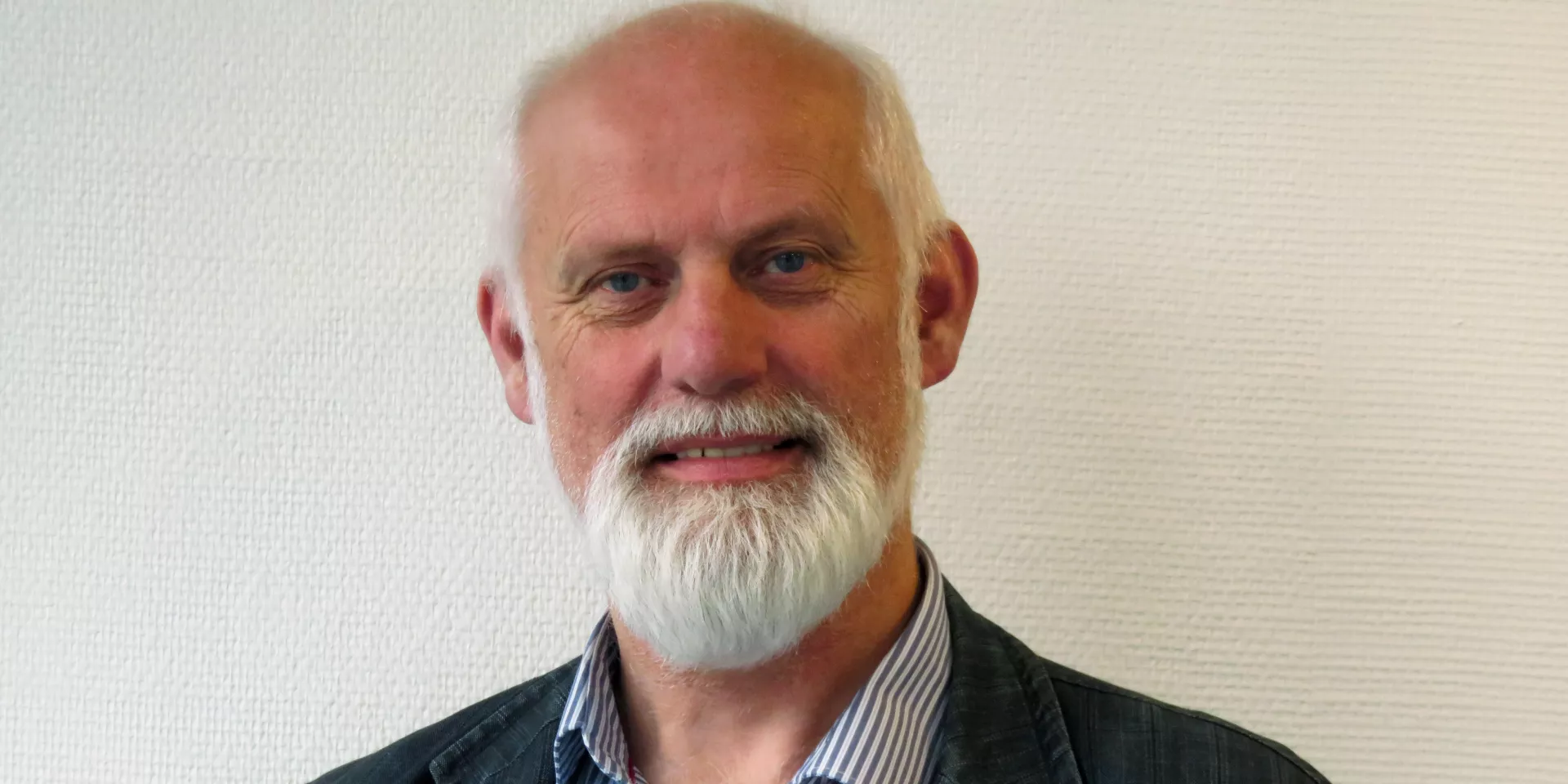
Director Plantum
Plantum is the Dutch association of seed and planting material companies with about 300 members, including potato breeders such as Royal HZPC Group B.V. The association represents these companies to government, politics and society. As the director of Plantum, Niels Louwaars has been closely following the rise of gene-editing (e.g. CRISPR-Cas) and the corresponding, renewed political debate.
Niels Louwaars: "We want to reduce the use of chemicals in agriculture. We want crops to be more robust and resilient to the impacts of climate change. And we want crops that fit the needs and demands of consumers and processors. And all as soon as possible."
Plant breeding is a very powerful part of the solution and, over the past 50 years, considerable strides have been made to accelerate plant breeding, which is fundamentally a slow process. There were two major developments in the 1980s that led to this acceleration: GMOs (genetically modified organisms) and marker-assisted selection.
GMOs are not accepted for cultivation in Europe. New Genomic Technologies (NGTs) such as CRISPR-Cas, however, are a logical next step in a trend that has been going on for 50 years. However, there is societal distrust when it comes to NGTs; the laboratory techniques are so complex that people tend to think they are still GMOs. But gene-editing is substantially different and it only produces plants that can also be created in nature.
"In Europe, we have very strict legislation for so-called regulated GMOs. Only large companies with sufficient financial and legal capacity can take advantage of the corresponding opportunities and then only for soya and maize, for example, where the investments can be made.
That’s where our concerns lie. Currently, CRISPR-Cas is still considered a regulated GMO. This prevents small businesses from using the method and puts them at a disadvantage. The diversity of companies is what makes the Dutch sector so strong. But it is coming under pressure because of this."
The diversity of companies is what makes the Dutch sector so strong
Discussions about CRISPR-Cas are on the European political agenda. The European Parliament has agreed to a European Commission proposal to roll back the CMO rules for most gene-editing applications. The proposal is for breeders to declare which techniques they have used and it also looks at whether finished products should be labelled. The key question, however, is how countries can regulate and control the situation. So while legislation is becoming more flexible, new regulations may be added and these, once again, will require financial and legal resources.
It is now up to the European Council to make a decision. How quickly that happens depends on the presidency of the European Council, which changes every six months. Last year, Spain and Belgium presided and pressed for a decision. They didn’t get one. Now, Hungary and then Poland hold the presidency, and they seem less eager. That means decision-making is likely to be two to three years away. And then it will take another two years before the legislation is in place. And all this while the world around us is already fully focussed on NGTs.Europe is still the biggest plant breeder and the classic methods are becoming more and more efficient so food security is not at stake. And it must be said that NGT is not a universal remedy either, just an extremely useful tool in the breeders’ toolbox. European plant breeding companies face a strategic choice: do they wait for the legislation or will they start working on NGTs outside Europe? Then, they would have to divide their research budget into two streams for as long as they are not allowed to use the products from gene-editing in Europe. The risk is that we will stifle progress as a result, as companies put less effort into the mainstream breeding programmes. But if you do not start exploring NGTs until the legislation is in place, you will be behind the curve.
CRISPR-Cas is not a universal remedy, just an extremely usefull tool in the breeder's toolbox.